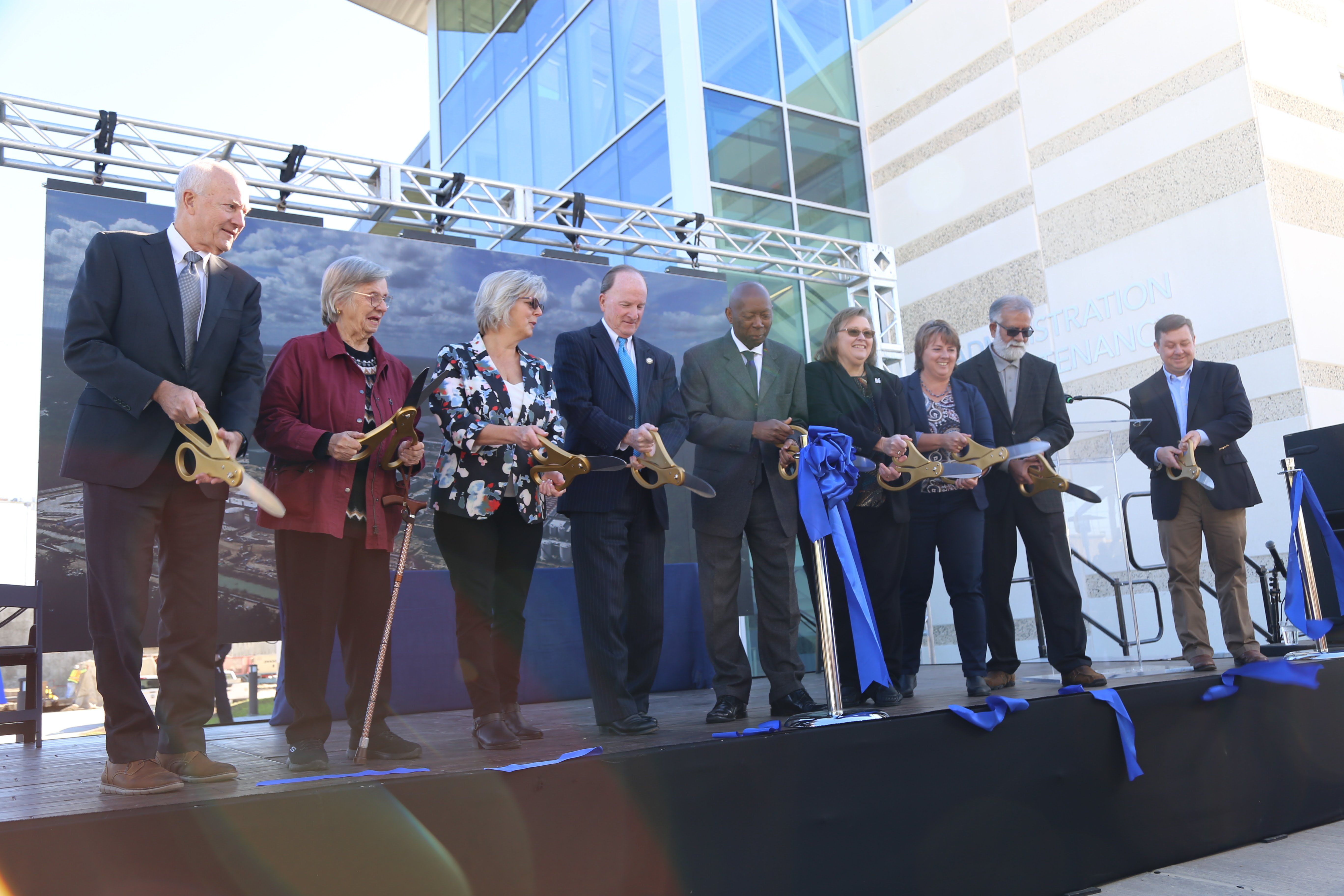resiliency on tap
City of Houston takes step toward resiliency with $1.7B project milestone

The plant has the capacity to provide the city with over 400 million gallons of clean drinking water daily due to the state-of-the-art intake pump system located 900 feet from the shore of Lake Houston. Photo courtesy of the Mayor's Office
A new project that will increase Houston's resilience in the face of climate change-driven storms has delivered.
Houston Mayor Sylvester Turner and Houston Public Works and other water provider organizations celebrated the newly operational Northeast Water Purification Plant Expansion, which is the culmination of a $1.7 billion project.
The multi-year construction project began in 2017. The plant has the capacity to provide the city with over 400 million gallons of clean drinking water daily due to the state-of-the-art intake pump system located 900 feet from the shore of Lake Houston.
“Eight years ago, the city of Houston joined with four regional water authorities to invest over $1.7 billion to build what would become the largest public works water construction project in the nation,” Turner says in a news release. "The Northeast Water Purification Plant is an essential part of our city's infrastructure and growing resilience to the effects of climate change.”
The city of Houston partnered with the North Harris County Regional Water Authority, the West Harris County Regional Water Authority, the North Fort Bend Water Authority, the Central Harris County Regional Water Authority, the Texas Water Development Board, and many others. The Northeast Water Purification Plant is located in Humble, Texas.
Houston Public Works is responsible for, production and distribution of water, collection, and treatment of wastewater, and permitting and regulation of public and private construction, and streets and drainage.
“By increasing the City’s capacity to treat surface water and reducing dependence on groundwater, the project helps mitigate the risks associated with ground subsidence, such as increased flooding, damage to our roads, and other infrastructure issues,” Houston Public Works Director Carol Haddock says in a news release.